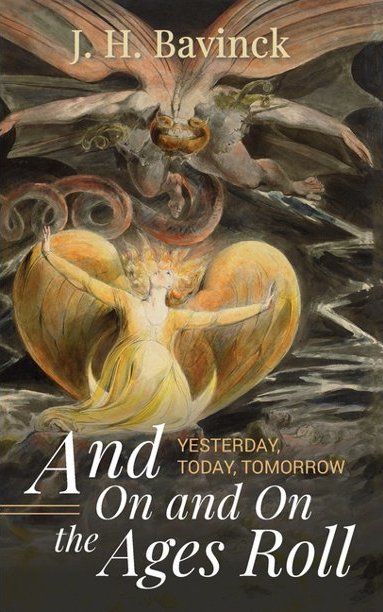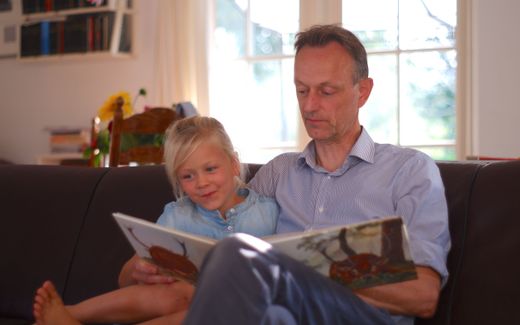Enjoy reading about Luther and breastfeeding (Summer tales 2/3)

Studying as 'vacation work' is very helpful. Photo CNE.news
Christian Life
Reading thick books during your leisure time, summarising them, and even saying that that helps to refresh? For many years after my graduation, I could not think that would be me. But for a few years, I love to really study during the holidays.
It starts by finding out what the best hours for reading are. For me, it is the second part of both the morning and the afternoon. Early in the morning, my concentration is weak, and after lunch, it is even worse. But from 10.30 am, and after 3 pm, I have a good focus.
During the vacation, you have more freedom to plan your day. And as far as that is possible as a family father, I try to organise reading time for myself.
I decided to do this in the summer of 2016. For an interview about Dietrich Bonhoeffer and his vision of war and peace, I had interviewed Prof. Rainer Mayer. He had edited the German version of Eric Metaxas’ biography of the man and gave a copy to me.
I decided to go for the challenge of reading a 700-plus pages book in German. And I have to say; I enjoyed it.
Luther and breastfeeding

So, the following year I decided to go for another German work: “Martin Luther. Rebell in einer Zeit des Umbruchs” (there is an English version as well: Martin Luther: Rebel in an Age of Upheaval.). I received the book to prepare for an interview that I had with the author, Prof. Heinz Schilling, in 2013. I prepared that meeting like journalists usually do: just browsing through the book for a couple of hours, reading other articles about the book, and trying to make a well-read impression on the author.
After the interview was published, the book was staring at me. I was curious to know what was still hidden in the book that I did not know.
It brought me much more than I expected. Did you know that Luther received more than 40 letters a day? They all had to be read and most needed an urgent answer. But replying to a written note is not as easy as answering an email.
I surprised my wife by telling her that Luther thought breastfeeding was important. Of course, alternatives were scarce during those days, but still: not all men would bother so much and write that down.
From that year on, every summer break, I chose one thick book that I would not usually read. Sometimes a biography (Jonathan Edwards), but also a work that discusses a current topic (such as “A secular age” by Charles Taylor or “Unbelief and revolution” by Groen van Prinsterer).
Psychology
This year, it did not work to go through thick volumes.
I started with a small one, “Hart en ziel” by Willem Ouweneel (published in English as well under the title Heart and soul.)
Psychology is a bit of a new field for me. Therefore, this small introduction was useful. Ouweneel stresses that the subject starts with a Biblical vision of man. What is the core of a human being? His passions or his heart? As a Christian, you know that there is a soul. And who is in the middle: Christ or man? That has many consequences for therapy as well. That was quite helpful for my understanding.
Revelation

The second book was “En voort wentelen de eeuwen” by J. H. Bavinck (1895-1964). The English title it received in 2019 sounds much better: And on and on the ages roll.
This book was on my shelve since 1995, after a friend recommended this to me in 1992. So, I have to admit that I have a bit of a reading delay. I knew I had to read this at some point. But there were always other books that received more attention. Looking backwards, I do not think I would have been so receptive to Bavinck’s thoughts back in 1992 when I was 20.
Bavinck’s book astonished me very much. It is a study in the Bible book of Revelation, written 70 years ago. But I do not doubt that this work is timelier now than when it was written in 1952.
A few things struck me very much. Firstly, human pride thinks it can master world and nature. For ages, we have been working to unlock the secrets of creation. And we have been so successful that we have reached a point where we think of ourselves as creators. But then, nature strikes back, and we realise that we cannot control the world. Nature will strike back like a wounded animal. That brings fear. Fear that we thought we had left behind in the Middle Ages, before the scientific age.
We can picture precisely what Bavinck is talking about: the climate crisis. And environmental pollution. And perhaps a nuclear disaster. That is threatening people right now – no doubt.
What exactly did Bavinck think about himself? He does not speak about that very extensively. Perhaps he was just prophetic and talking about things to come. Things that he did not know himself yet.
King Madness
Bavinck also speaks about humanity which wrestles itself free from reality and creates its own life. Interesting that Bavinck says that freedom and independence are fruits of the Gospel. But as soon as self-realisation gets separated from the humble subjection to God’s order, degeneration and deterioration come to the surface. Then man thinks he is allowed to do everything.
After giving up all moral standards, men are caught in a storm, tossed about as a ship wrenched away from her anchors. Norms and values that kept the nation alive for ages are lost. Morals are not more than an empty phantasy. The days of common sense are over, and the days of King Madness have started. What results is a wave of despair and people with a death wish. Before the day of doom comes, man is occupied by the dance macabre.
To be honest, this is all quite shocking. It reminds me of what we hear a lot in our time: that people do not feel at home in their own body. Gender dysphoria is a difficult thing, and I think it is good to speak about it with hesitation. But at the same time, it is chilling. Where does it come from? And where does it lead to? If this is a fruit of the sexual revolution, it is not the healthiest one.
And yes, today’s well-being is threatened by many mental afflictions, of which gender dysphoria is one. In our smartphone age, there is much luxury but no mental stability.
Bavinck traces this all back to the nihilism of our days. No God, no master! Sometimes we think that that’s dominant in our days. But seemingly, that was present in Bavinck’s time already.
Wanted: A book on immigration
Reading a book like this helps me a lot in my work. It helps to understand what is going on.
Of course, it is remarkable that a book is timelier after seventy years than it was at the day of writing. The only explanation that I have for that is that it is written in the light of the Bible. That is much clearer than the light of the media. Because of these insights, such a book has a longer-lasting value than during the few hours of reading pleasure during the vacation.
There is one topic I would love to read a book about. That is (im)migration. Today, the media are showing that our world is full of migration. My own country would have a shrinking population if there were not so many newcomers.

But how should we see this from a Biblical perspective? Of course, as a Christian, you cannot be a racist since all people are brothers and sisters, created “from one blood”. But is it fine to mix all nations and cultures and be indifferent to history? That is just something I would like to know more about. If you have a hint for a book, please let me know. I will read that during a next summer break and, perhaps, write about it again.
Related Articles






